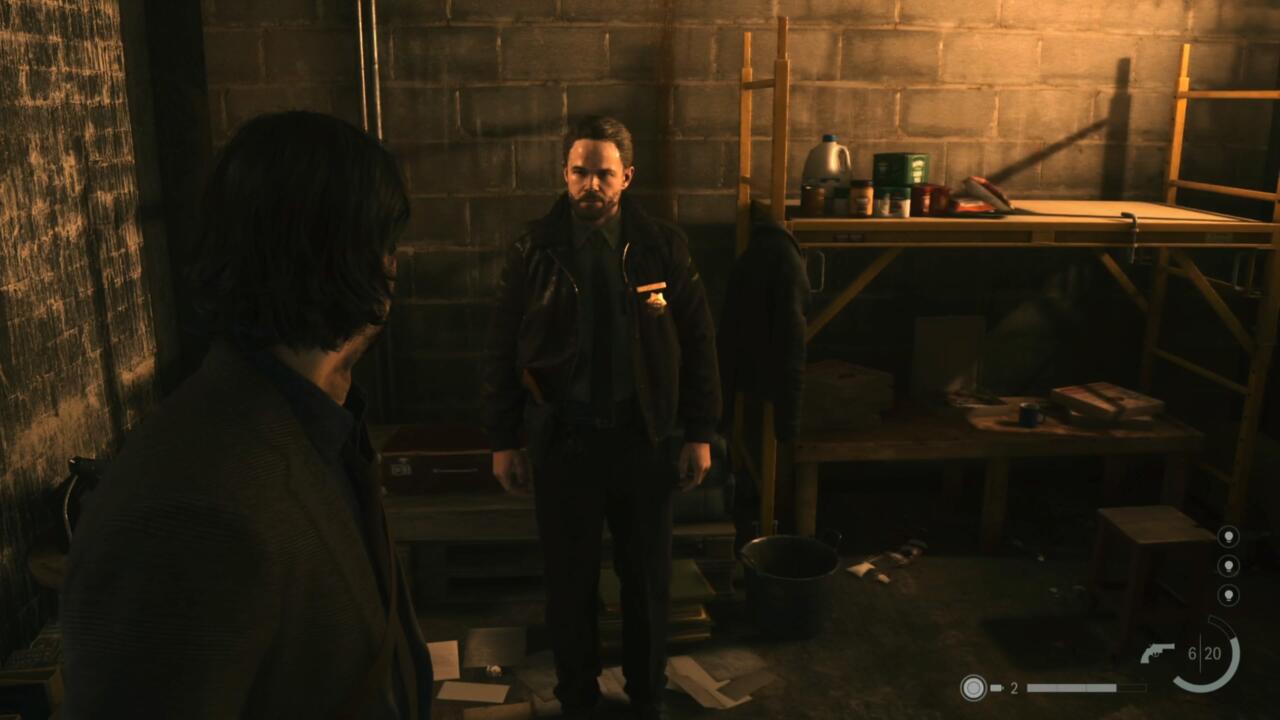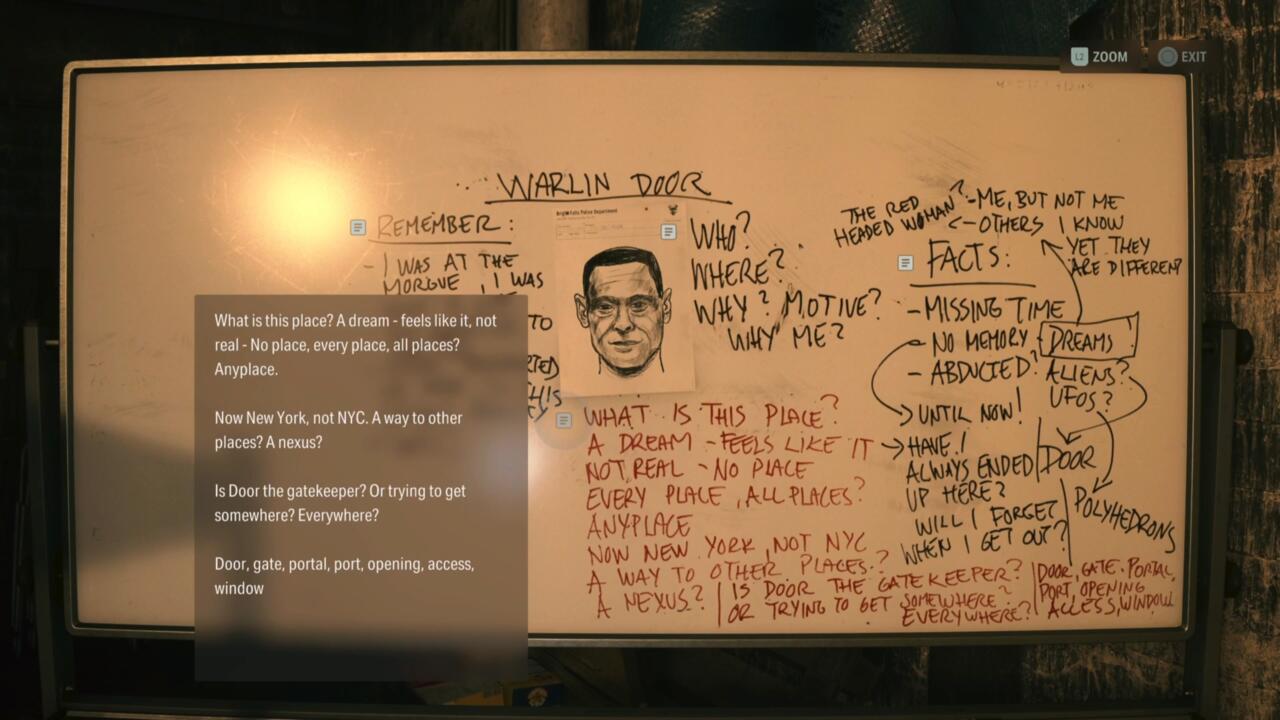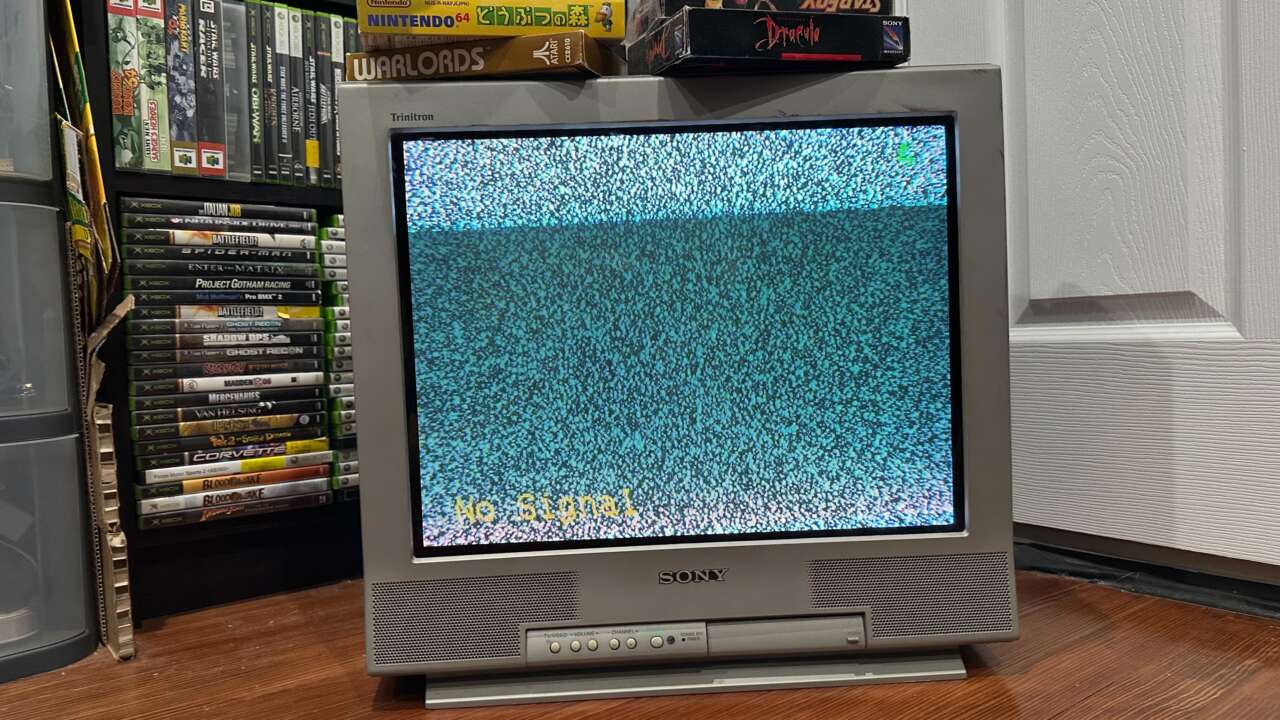In Alan Wake 2, Remedy Refreshes The Multiverse Idea By Making It A Villain
Warning: This article has some slight spoilers for the later portions of Alan Wake 2, although we tried to keep them to a minimum. It also contains spoilers for Quantum Break and Control.
If you google the term “multiverse fatigue,” you’ll find a whole slate of articles, social media posts, and forum discussions in which people complain about how much the idea of a “multiverse” has permeated popular culture. With superhero stories and their cinematic universes dominating movies and spreading to TV, the once-fringe, science fictional idea of multiple connected universes and alternate dimensions has become mainstream, and with its ubiquity, kind of dull.
It’s into this climate that Remedy Entertainment has released Alan Wake 2, the studio’s second game since it started talking about its “Remedy Connected Universe” and narratively linked the Alan Wake games to 2019’s Control. And the RCU isn’t just bringing Remedy’s current and future games into the same world so they can overlap with one another like TV show crossover events. Control is largely about the idea of a multiverse as something to be explored, studies, and defended against, and makes a lot of gestures in the direction that Remedy’s past games could be among those additional dimensions.
If you were already annoyed with the prevalence of sprawling multi-story universes and strange multiverses, you might find yourself even more frustrated with Remedy and Alan Wake 2, which goes beyond Control’s Easter eggs to make text from the subtext.
But Remedy’s approach to the multiverse manages to stand apart from that of other media, because for Remedy, the multiverse isn’t just a way to cash in on well-liked characters or to draw fanbases together. In the RCU, the multiverse is an oppressive force that now looms over all these stories. It spawns dark forces and corrupts and twists people, or pulls them out of their lives and traps them in nightmarish new realities. For Remedy, the multiverse isn’t a setting or a gimmick–it’s a villain.
Though Alan himself is trying to fight his way out of a dark alternate dimension in all the Alan Wake games, there’s another character who perfectly personifies a growing sense of the uncanny in Remedy’s games: Warlin Door. First mentioned in dialogue and notes in Control, Door shows up a lot in Alan Wake 2, mostly serving a comedic role in Alan’s dream-like trips through the reality-bending alternate dimension, the Dark Place. Door plays a talk show host when you first encounter him, and he seems more a goofy personification of the weirder effects of the Dark Place than an actual character.
That all changes when, as you explore the Dark Place, you come across another person seemingly stranded in Alan’s nightmare. Sheriff Tim Breaker was just a regular guy in Bright Falls, someone who met with the game’s other playable character, FBI Agent Saga Anderson, early in the game–and then he suddenly vanished in the middle of a conversation with Anderson. When playing as Alan, it’s possible to come across Tim, stranded in the Dark Place, trying to find his own way out.
Talking with Tim adds a different sense of dread to Alan Wake 2. He tells you about searching for Door, who Tim believes transported him to the Dark Place to start with, although he doesn’t know why. Tim also talks about strange feelings he has, as if he’s been here before but forgotten; about things and people he sees in dreams; about a sense of being someone else and knowing people almost from another life.

What it appears Tim is referring to is a multiversal tie to time-travel story Quantum Break, another Remedy game. Tim is portrayed by actor Shawn Ashmore, who played protagonist Jack Joyce in Quantum Break. Some of the things Tim talks about and writes on the white board he uses to track his memories and investigation of Door sound like references to Jack’s life in Quantum Break. He also mentions a “red-haired woman” he keeps seeing and feels like he knows. In Quantum Break, Jack meets and works with Beth Wilder, a red-haired woman, who’s played by actor Courtney Hope–who plays protagonist Jesse Faden in Control. Even Tim’s name sounds like a Quantum Break reference, since Tim Breaker is remarkably close to “time breaker,” which describes Jack Joyce in Quantum Break.
It’s less important that Alan Wake 2 is implied to have ties to Quantum Break than it is to look at how this conception of the multiverse is affecting the story’s characters. Tim isn’t just a guy traversing through the multiverse, he’s someone who’s afflicted by it. He’s been attacked by some unknown power, altogether different from the Dark Presence that Alan is battling. The multiverse is pressing in on him, invading his dreams and altering his perception. He has lost control of his very existence, the fundamental elements of his identity, and he has no idea why.
Later, Alan has an interaction with Door in which the mask is dropped. Door tells Alan that he’s been content to play a part in Alan’s story and to help him, but that Alan’s meddling through the Dark Place is potentially affecting Door’s agenda.
Control provides even more context about Door. The brother of protagonist Jesse Faden, Dylan, talks about seeing a “Mr. Door” in his dreams, who explains the multiverse to Dylan and says that he exists in all the worlds, “endlessly shifting between them.” Door doesn’t seem like a malevolent entity from Dylan’s description–Door pointedly doesn’t help him spread the Hiss, Control’s Dark Presence-like antagonistic force, to other dimensions–but there’s clearly more going on with him than we know.
It’s worth noting that Quantum Break also has a semi-villainous character who, by the end, seems to be manipulating events to help Jack, but for his own ends. That character’s name is Martin Hatch–and side by side, Warlin Door look suspiciously like the Wario-ization of that name. Of course, Remedy doesn’t own the rights to Quantum Break, so these connections are left ambiguous.
But again, it’s not the connections themselves that are important. It’s the way Remedy is using these connections to do more than drop some fan service. Alan Wake 2 and Control suggest not only a larger landscape of stories, but influences between them, forces traversing them, and agendas executed through them. Who and what the hell is Warlin Door, and what does he want? For that matter, who or what the hell is Ahti, the janitor who appears repeatedly in Alan Wake 2 to help out the protagonists, and plays the same role in Control?
And that’s to say nothing of the focus of either Alan Wake 2 itself, which is about a dark alternate dimension and a viciously powerful creature released from within it. The Dark Place and the Dark Presence are nightmares that don’t belong in Alan’s world and yet are loosed within it, rewriting the rules of reality.
Remedy isn’t just creating a scary tale about a story that comes to life in Alan Wake 2–it’s seeding the tendrils of a growing cosmic horror story that spreads throughout all its games. There are unknowable intelligences at play in these worlds, they are unseen but constantly present, and they are after something. They corrupt, manipulate, and kill the people in their paths. They are engaged in some sort of struggle beyond our understanding.

In the RCU, the multiverse is less a series of parallel dimensions and more a bunch of self-contained bubbles slamming together, combining, overlapping, and consuming one another. And the very nature of these overlapping stories isn’t just bringing characters together, it may well be driving them mad. The universe itself can get into your mind in the RCU. It can invade you and change you, alter your very essence, and make you question who you are.
If you’re looking for a better way to do multiverse stories, Remedy has a pretty good idea. Don’t just set your stories in a multiverse: Make the multiverse something to contend with. The multiverse itself is something terrifying in Alan Wake 2, and that approach is turning the RCU into something much more than a bunch of games that happen to mention each other.
The products discussed here were independently chosen by our editors.
GameSpot may get a share of the revenue if you buy anything featured on our site.
Check out our Latest News and Follow us at Facebook
Original Source







